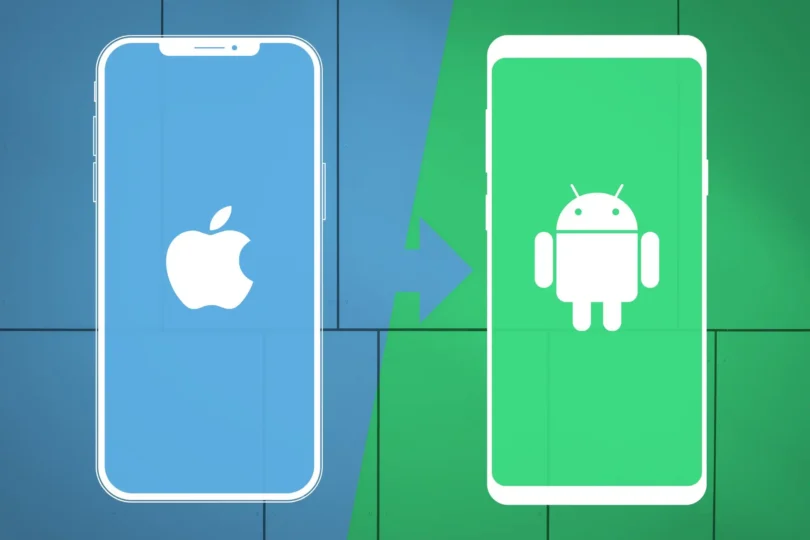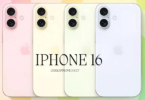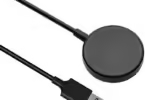In the arena of smartphones, two titans clash, Apple Company’s iPhone and Google’s Android (iPhone vs. Android) operating system. Each OS runs numerous devices giving users access to communication means, entertainment, and information. However, when it comes to picking one’s fighter, the action depends on one’s preference. Are you seeking a coherent, unified solution and optimal ease of use? Or does one focus on the ability to fine-tune drift, the open-source nature of the OS, and more versatile hardware choices? It is time to explore and review the core advantages and potential issues of iOS and Android to assist you in choosing the most suitable smartphone companion to fit into your daily life practices.
iPhone vs. Android: The Allure of Apple, Pros for Owning an iPhone
- Seamless Ecosystem and User-Friendliness: iPhones are particularly famous for their simplicity of use, huge touch screen, and user-oriented design. Apple values simplicity for its products meaning that it makes navigation and use of apps in the smartphone as simple as possible even for a layman. This user-friendliness is not limited to the phone itself only but also goes further. iOS and OS X devices – iPhones, iPads, Macs – are coherent and work together harmoniously. AirDrop makes it easy to transfer files, while tools like Handoff can assist in keeping you shifting between tasks and devices. It creates a tightly-knit environment that ensures that the transition between each feature is seamless and logical.
- Unmatched Security and Privacy: Apple brand iPhones are reputed for one efficient security system or measures. Apple thus has full control over any new application and upgrade, unlike Android which has numerous applications that contain malware and security breaches. Biometric security options such as Face ID or, Touch ID allow for biometric authentication; there are constant updates to iOS which means your device is safeguarded against newer threats. Moreover, Apple with careful consideration of customers’ needs provides great attention to the privacy matter. App usage is more regulated as far as the data they’re allowed to collect is concerned, and there are obvious features such as App Tracking Transparency.
- Top-Tier Performance and Integration: With iPhones, performance benchmarks have always been impressive. Apple developed these A-series chips to work specifically on their devices and work seamlessly with multitasking systems. This means a fluid user experience free of lags and hiccups while having to perform other tasks or use heavy apps and games. Furthermore, iPhones can synchronize well with Apple services such as; iCloud to store data securely and Apple Music to stream excellent quality music.
- Unmatched App Quality and Long-Term Support: Like Google Play, the App Store is far from perfect but provides one big advantage: quality assurance. Another advantage is that because of the new policy that requires a much closer look at applications, Apple gets only better-quality applications that are tested and rarely buggy or malicious. Moreover, iPhones are famous for accessing a longer period of operating system updates, sometimes for years after the device’s launch. This means that there is long-term security and features that you enhance and ensure that your iPhone runs right for a longer time.
- Excellent Build Quality and Resale Value: Apple iPhones specifically have always been associated with the quality and durability of pieces used in their production. It provides tremendous build quality and great looks, which is a reflection of Apple’s work, and handling the phone is a delight. This commitment to quality does not in any way exclude the internal parts hence your iPhone is capable of withstanding day-to-day use. Furthermore, one cannot overlook the fact that iPhones have the best re-sale value. As a result of their reliability, association, and secure OS support the iPhones are known to depreciate slower than many Androids in the market.
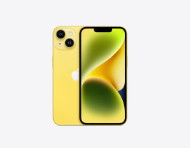
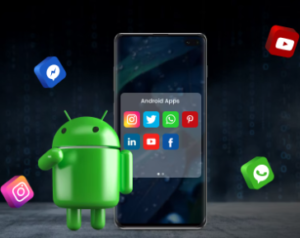
In the technology program of smartphones, the iPhone company still stands tall and towering as a behemoth. Android is diverse and can be customized, while Apple’s iOS has benefits that make consumers remain attached to the product. This is an overview of the above-mentioned advantages and we will see whether the iPhone meets your requirements as a smartphone.
iPhone vs. Android: Team Android, Drawing the Curtain on the Powerhouse of Open Source
Buy NowIn the smartphone Colosseum where giants like Apple and Blackberry strived, Android emerged a winner with open-source flexibility and power to the users. Thus, iOS can be regarded as simple and easy to use, while Android has several amenities that would be appealing to different users. Now, let’s consider the potential benefits of Android that can explain why this operating system can suit you.
-
Freedom of Choice: A Universalised Concept of Devices
Unlike iOS which limits you to using only Apple-produced iPhones, android offers you the freedom of virtually any device that comes from any company. The much-acclaimed smartphone brands today include Samsung, Google Pixel, OnePlus, Xiaomi, etc. This variety leads to more options favoring the client with features, prices, and designs that they can comfortably afford or are a good match for their preferred aesthetic. Searching for a phone that is equipped with a camera that can win all battles? Do you need a gaming computer with a powerful processor? A phone that could last long and is not affected by the physical environment? The Android ecosystem has a device for everyone – this one is made for you.
-
Customization Galore: Own the Process
Android doesn’t push for a top-down model, or one particular way of doing things. This gives you the flexibility to customize the phone in a way that is next to none. From the widgets that replace the home screen’s grid to icon packs that alter your interface’s aesthetic, you can make Android your own. Looking for a widget that would show you the current conditions or a button to open your favorite music application? Android allows you to place widgets directly on the home screen for a specific touch of ease.
-
Openness and Flexibility: Going Wider and Beyond the Walled Garden
While iOS maintains a strict policy that only permits the download of apps from the Apple App Store, Android opens its arms to application liberty. Although the Google Play Store has the original recognized programs, Android even offers the services of a third-party store for application download. Does the time call you for a particular photo editing application or perhaps a particular productivity app? The user experience is more open-ended because you do not have to confine yourself to a particular app store.
-
Hardware Innovation on the Cutting Edge
There are always innovations that Android manufacturers are using to design and build the best hardware for their smartphones. From sophisticated camera configurations offering crazy degrees of digital zoom to ultra-high frame rate screens, ensuring smooth images, Android handhelds are always leading the pack. This translates into a variety of options that are available to you to decide on a particular phone that would best fit your desire for a smartphone.
-
Cost-Conscious Options: Indeed, each dollar earned must be given its value.
Android is an open-source platform, and unfortunately, its attractiveness is the fact that is cheap to use. With more manufacturers, there exist products that can fit all the price brackets. Looking for a simple phone with calling and message capabilities? This is something that one can find on an Android phone. Luckily, the Android market doesn’t leave the lovers of such features untouched. This accommodates price flexibility, which guarantees the existence of an Android phone that suits your financial capacity while offering basic functionalities.
-
Google Integration: An Integrated System
Although iOS is superior in terms of the closed environment, Android does not adapt well to Google services. From mail to maps, from Drive to the Assistant, your Android phone is your Google account, practically. The uninterrupted use also enables users to carry data, contacts, and preferred settings from one device to the other creating a seamless and comprehensive digital experience.
-
Future-Proof Technology: Harnessing Open Innovation
However, Android being an open source has a competitive advantage in that it can adopt new technologies more quickly. Android OS is more open for development where the manufacturers can incorporate new features and functionalities at a faster rate than iOS.
Which one should you choose?
In this clash of iPhone vs. Android, whether to opt for iPhone or Android is entirely up to you based on the priority list outlined below.
Do you want to have perfect compatibility with the client’s applications, a user-friendly system, and 100% assurance of the quality of the interaction? iPhone can be your victor.
Choose between customization, open-source flexibility, and a broader hardware choice. It can be Android that turns out to be your ultimate winner.
Consider your budget: iPhones themselves are generally more expensive, to their part, Android has a broader variety of choices, available across different price levels. Think about the ecosystem you’re already invested in: If you are using many Google services, such as e-mail, maps, Google+, calendar, and others, the integration with Android may be faster. Still, if you are an Apple product user, the iPhone gives a perfect combination to it.
All in all, you would be choosing what fits your needs and preferences most properly. Purchasing electronics requires testing the devices in stores, studying certain functionalities, and do not limit yourself!
To learn more related to phones then visit: https://geekapproved.net/category/phones/

